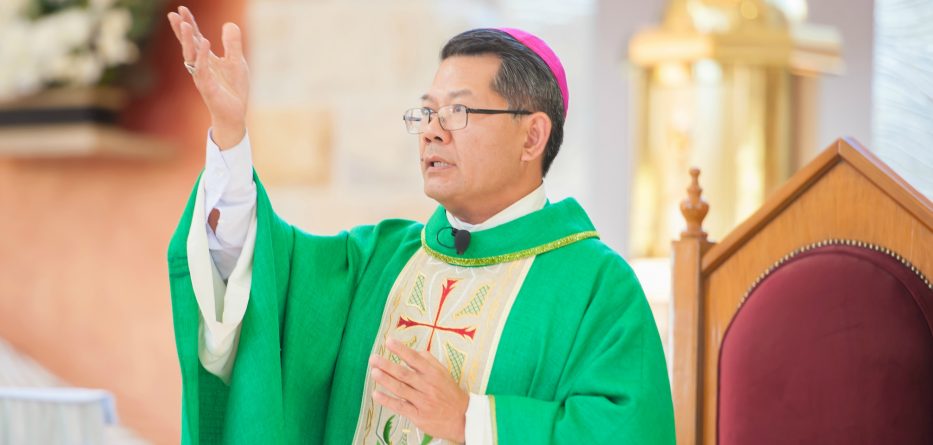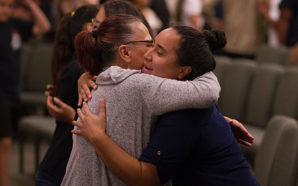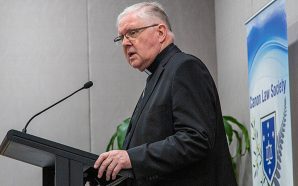Most Reverend Vincent Long Van Nguyen OFM Conv DD STL, Bishop of Parramatta
Homily for the 10th Sunday in Ordinary Time in Year B 2018 at St Aidan’s Parish, Rooty Hill
9 June 2018
Dear sisters and brothers,
Many years ago, when Australian soldiers returned from Vietnam, they did not receive the usual hero’s welcome that soldiers returning from other battlefields would receive. Instead of being greeted with ribbons, banners, victory rallies and ticker tape parades, many of these veterans were met with indifference, rejection and even hostility. It was a controversial war and in the eyes of the world, they had fought on the losing side. They were considered not winners, but losers in a bitterly divisive war. Consequently, the returned soldiers were seen as symbols of a great national failure. It took years, if not decades, before they were accorded the same honour and respect as other veterans.
The Gospel today also speaks of a similar homecoming on the part of Jesus. He returned to Nazareth with his disciples after a period of preaching, healing and ministering among the people. But instead of a hero’s welcome, Jesus got a very chilly reception, not only from his adversaries but also from his own family and relatives. In the face of misunderstanding and rejection on the part of the latter, prejudice and hostility on the part of the former, his fidelity shone through. It is a lesson for us as we endeavour to follow his example and live out the demands of Christian discipleship in challenging times.
First, let’s look at the prejudice and hostility of his adversaries. They had already concluded that Jesus was a phoney because he was not one of them. He was outside the established system and without credential. He was labelled as being in league with the archdemon Beelzebul. In response, Jesus offered a different account of what was going on. As the tree is judged by its fruit, his deeds of healing, forgiving, restoring, affirming et cetera bore witness to the coming of the kingdom of light. They were signs that he, the stronger man, had arrived and that he had “tied up” or overpowered the evil one.
Jesus often met entrenched prejudice on the part of the privileged and influential such as the scribes and Pharisees. He challenged their adversarial and stereotyped mentality. The God he preached upset them because this God did not reject the socially marginalised, the ritually unclean or the morally inferior. Indeed, it was the tax collector, the foreigner, the blind, the lame et cetera who were the beneficiaries of God’s unstinting goodness and love. Conversely, the scribes, Pharisees and those who claimed to be the brokers of God’s domain and his exclusive representatives in society were rejected for their pride and arrogance.
The second lesson is even more humbling. Jesus had a reality check and it came from his own family. Instead of welcoming him home as a hero, he was treated with shame and repudiation. In Mark’s Gospel, the litmus test of Christian discipleship is complete fidelity to the cross in the footsteps of the suffering Messiah. This fidelity would be preferred to even family ties. In Jesus, God did the unthinkable. He started a new family, a new bond that would cut through the traditional structure. This is what it means when Jesus says, “Anyone who does the will of God is my brother and sister and mother.” It is a call to us to be loyal first and foremost to God and the works of His Kingdom.
Christian discipleship is never for the faint-hearted nor is it for those who want to have a bob each way. Those who follow God would have to choose him and his values over and above others. Like Abraham, Joseph, Mary, they would have to stake everything on God’s plan for them: houses, possessions, emotional attachment to places, people, lifestyle et cetera. Nothing less than a total and radical commitment is needed for the citizenship of the Kingdom.
Jesus uses very strong images of family divisions to emphasise the importance of the undivided loyalty, the single-mindedness and the unmitigated dedication with which the disciples are to prosecute the cause of the Kingdom. Christian discipleship ultimately takes us to Jerusalem with the Suffering Servant of God. Therefore, nothing short of a total consuming passion will see us through.
Sisters and brothers,
Today, we may not face a hard choice between our faith and our family or our livelihoods. Nonetheless, Christian discipleship demands our moral courage, integrity and fidelity. Our world, as the first reading reminds us, is inflicted with evil. Christians are to participate in the divine project of reconciling and restoring all things in Christ. We do so by our willingness to confront situations of injustice or conflict without compromising the Gospel and without counting the cost to oneself. It is our commitment to the truth of the Gospel even at the hazard of incurring the ridicule of others.
Pope Francis invites us to face the challenge of sharing the mystique of living together, of mingling and encounter, of embracing and supporting one another, of stepping into this flood tide which, while chaotic, can become a genuine experience of fraternity, a caravan of solidarity, a sacred pilgrimage. May we have the courage to follow the example of Christ and live fully the demands of Christian discipleship.
Amen.








